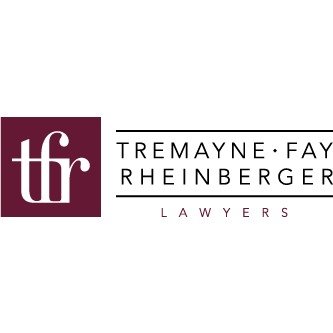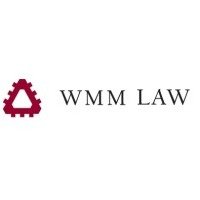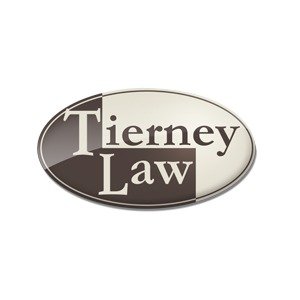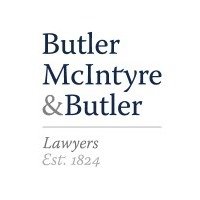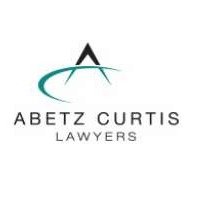Best Elder Law Lawyers in Hobart
Share your needs with us, get contacted by law firms.
Free. Takes 2 min.
List of the best lawyers in Hobart, Australia
About Elder Law in Hobart, Australia
Elder Law in Hobart, Australia, is a specialized area of legal practice focusing on issues affecting elderly individuals and their families. As the population ages, the need for skilful navigation of legal matters becomes more pertinent. Elder Law covers a broad array of topics, including estate planning, retirement, nursing home care, and guardianship. In Hobart, practitioners of Elder Law aim to protect the rights and well-being of older adults while facilitating their ability to manage their affairs effectively. The legal framework is designed to address the unique needs and challenges faced by the elderly, ensuring they receive appropriate care and support while safeguarding their assets and wishes.
Why You May Need a Lawyer
There are several situations where individuals or families may require legal assistance in Elder Law. Common scenarios include:
- Estate Planning: Creating or updating wills, establishing trusts, and ensuring that assets are distributed according to one's wishes.
- Guardianship and Power of Attorney: Arranging for legal decision-making powers in the event of incapacity.
- Healthcare Directives: Preparing documents that dictate preferred healthcare decisions in circumstances where the individual cannot communicate their wishes.
- Aged Care Accommodation: Understanding and negotiating contracts with nursing homes or assisted living facilities.
- Financial Management and Elder Abuse: Safeguarding against and addressing financial exploitation or abuse of seniors.
- Pension and Benefits: Navigating the complexities of government support systems like Centrelink and ensuring the elderly receive their entitled benefits.
Local Laws Overview
In Hobart, and more broadly in Tasmania, Elder Law is governed by a combination of federal and state legislation. Critical areas to be aware of include:
- Guardianship and Administration Act 1995 (Tas): Outlines the conditions and processes for appointing guardians and administrators for individuals unable to manage their affairs.
- Aged Care Act 1997 (Cth): A federal law governing the provision of aged care services, focusing on quality of care and residents' rights.
- Powers of Attorney Act 2000 (Tas): Provides the guidelines for creating enduring powers of attorney for financial decisions.
- Retirement Villages Act 2004 (Tas): Regulates the operation of retirement villages and the rights of residents within these communities.
- Succession Act 1981 (Tas): Governs matters related to wills, estates, and intestacy.
Frequently Asked Questions
What is a Power of Attorney and why is it important?
A Power of Attorney is a legal document that allows someone to appoint another person to manage their affairs if they become unable to do so. It is crucial for ensuring financial decisions are made in the best interest of the individual.
How do I choose the right lawyer for Elder Law?
Look for a lawyer with experience in Elder Law, a strong understanding of local legislation, and good client reviews. Personal recommendations can also be helpful.
What is elder abuse and how can a lawyer help?
Elder abuse can be physical, emotional, or financial. A lawyer can help protect the rights of the senior, take steps to prevent further abuse, and seek legal recourse against offenders.
How can I challenge a will?
To contest a will, you must have legal grounds such as undue influence, lack of capacity, or the existence of a more recent will. Engaging a lawyer with estate litigation experience is advisable.
What should be included in an aged care contract?
A comprehensive contract should include details about services provided, fees, rights and responsibilities of residents, and any termination clauses. Reviewing these with a lawyer is beneficial.
What are advanced healthcare directives?
These are legal documents outlining a person's preferences for medical treatment if they become unable to make decisions. They are critical for ensuring one's healthcare wishes are honored.
Do I need a lawyer to apply for aged care services?
While not mandatory, a lawyer's guidance can be helpful in navigating complex aged care agreements and ensuring you understand your rights and obligations.
How can I protect my assets from being claimed by creditors in old age?
Asset protection strategies may involve setting up trusts or revising estate plans. A legal professional can offer tailored advice based on individual circumstances.
What are the penalties for elder financial abuse?
Penalties vary depending on the severity of the offense but can include fines, restitution orders, and imprisonment. Legal action can be pursued with the help of a qualified attorney.
How do I update a will in Tasmania?
Updates to a will should be done through a codicil or by creating a new will. It is recommended to have these changes reviewed by a lawyer to ensure legal compliance.
Additional Resources
For more information or assistance, consider reaching out to the following resources:
- Legal Aid Tasmania: Offers free legal assistance and can provide referrals to Elder Law specialists.
- Office of the Public Guardian (Tasmania): Provides support and advice on guardianship and administration matters.
- COTA Tasmania (Council on the Ageing Tasmania): A leading organization advocating for older people, offering resources and services.
- Australian Government Department of Health: Offers guidance on aged care services and support.
Next Steps
If you require legal assistance in Elder Law, the following steps may be helpful:
- Identify the specific legal issue or concern you are facing.
- Research and compile a list of potential Elder Law attorneys in Hobart.
- Schedule consultations to discuss your legal needs and assess charges.
- Prepare all relevant documents and information before meeting with a lawyer.
- Choose a lawyer who best fits your needs and budget to assist with your Elder Law matters.
Lawzana helps you find the best lawyers and law firms in Hobart through a curated and pre-screened list of qualified legal professionals. Our platform offers rankings and detailed profiles of attorneys and law firms, allowing you to compare based on practice areas, including Elder Law, experience, and client feedback.
Each profile includes a description of the firm's areas of practice, client reviews, team members and partners, year of establishment, spoken languages, office locations, contact information, social media presence, and any published articles or resources. Most firms on our platform speak English and are experienced in both local and international legal matters.
Get a quote from top-rated law firms in Hobart, Australia — quickly, securely, and without unnecessary hassle.
Disclaimer:
The information provided on this page is for general informational purposes only and does not constitute legal advice. While we strive to ensure the accuracy and relevance of the content, legal information may change over time, and interpretations of the law can vary. You should always consult with a qualified legal professional for advice specific to your situation.
We disclaim all liability for actions taken or not taken based on the content of this page. If you believe any information is incorrect or outdated, please contact us, and we will review and update it where appropriate.



